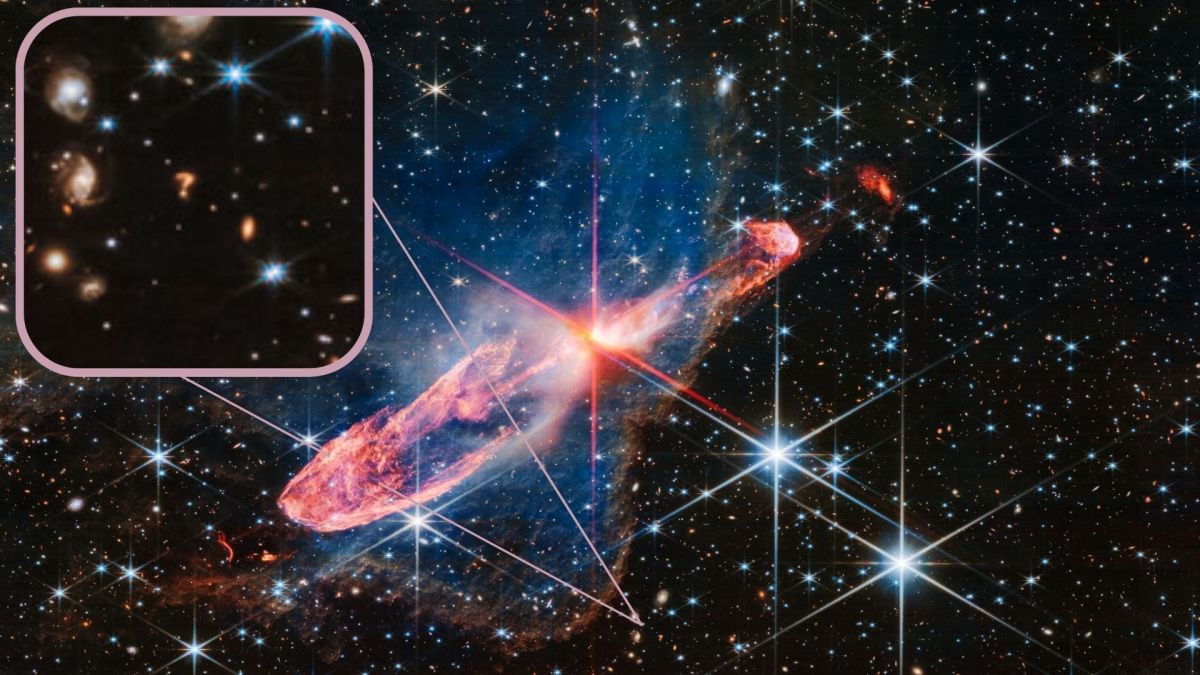A background object in the latest image from the JWST (James Webb Space Telescope) is literally confusing. Also, these objects are not only metaphorically confusing, they also pose a question, with their shape resembling a giant question mark.

The object looks like a tiny dot below the focus of the picture and is called Herbig-Haro 46/47. This duo consists of a pair of young stars that have been studied for decades. The stars are located on the edge of a dark nebula, so they may not look very majestic when observed with visible light. But JWST’s infrared eyes were able to reveal much more about the environment of these two baby stars by looking far beyond these layers.
JWST has such a keen view of the universe that most background objects in this observation are actually galaxies. Anything that does not include the characteristic six outward beams is something far beyond our galaxy, and the question mark is among them.
WHAT DOES THE IMAGE MEAN?
One possible explanation for the strange shape of this object is that there was a galaxy merger, or a place where two galaxies began to interact. We know of several such pairs in our local universe as well, and a famous example is the Mice Galaxies.
LOOKING AT THE CLOUD…
Some experts say the question mark could indicate two galaxies merging, one being stretched by the gravity of the other.
Head of astronomy at the University of Sussex, Dr. Stephen Wilkins said: ‘There are hundreds of billions of galaxies in the universe that we can observe from our region, and most of them have a spiral or elliptical shape, so they look like a speck from afar. However, just like clouds, you’ll find some shapes that look familiar if you look at them long enough, and it’s cool to see a question mark in the universe. “I’m sorry to tell people this is probably not a message to humanity, but it demonstrates the telescope’s incredible ability to explore our universe in a way that has never been seen before.”
The question mark system is probably located far away from us. Galaxy mergers have lots of new star formation, so they tend to be more “blue” due to the more energetic light emitted by younger stars. This doesn’t seem to be the case for this object, but sometimes dust in the object or foreground can break this rule of thumb.